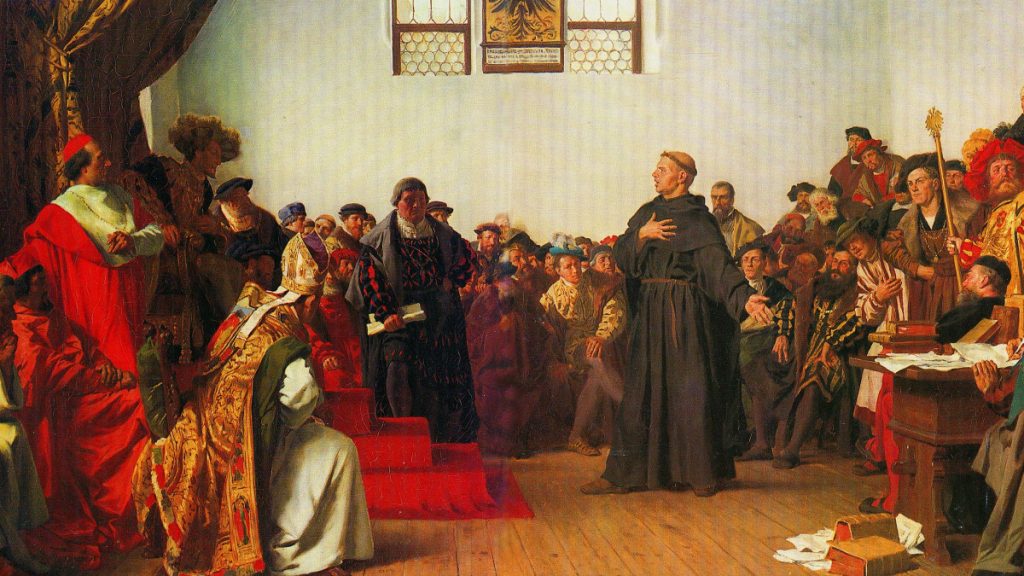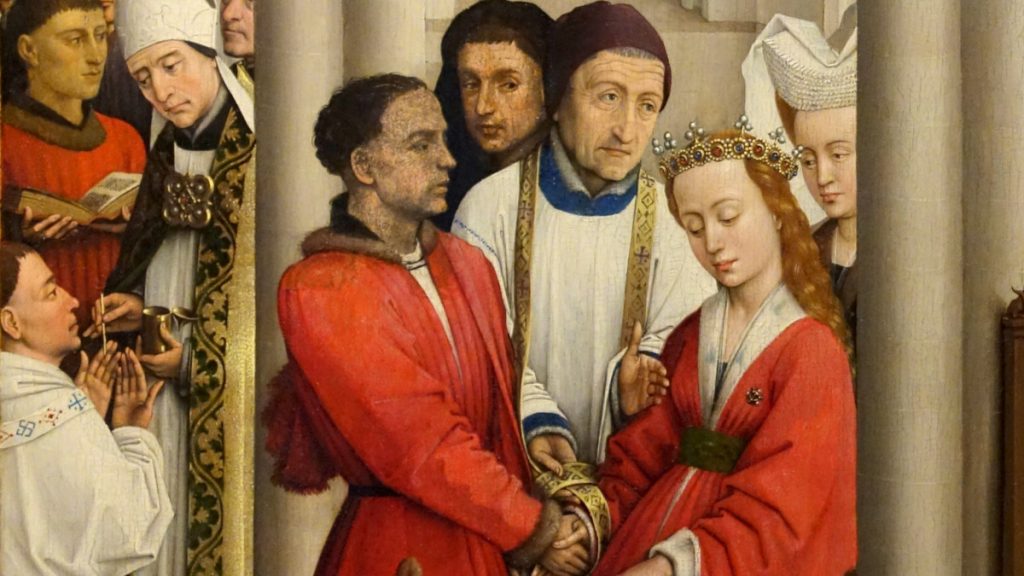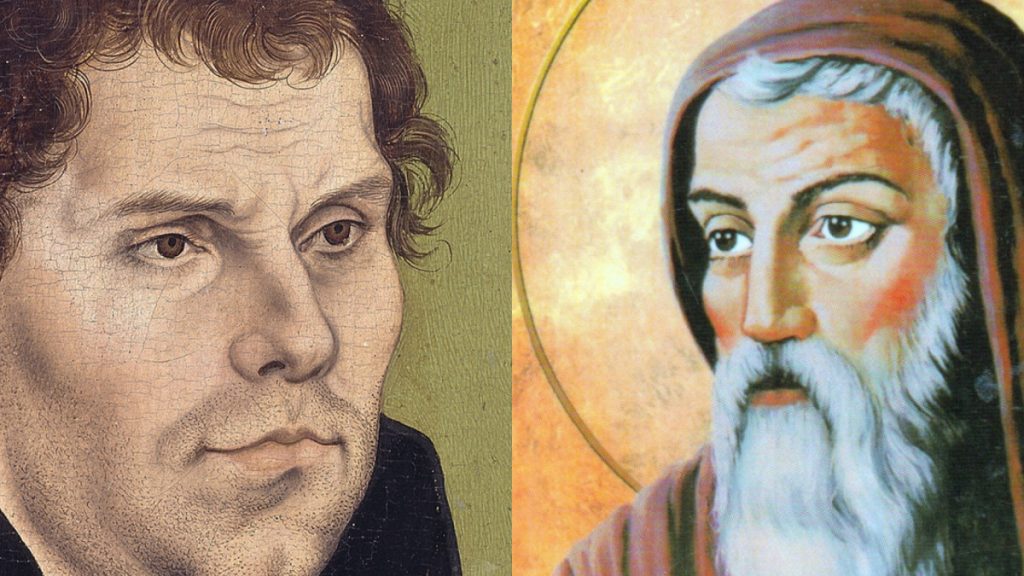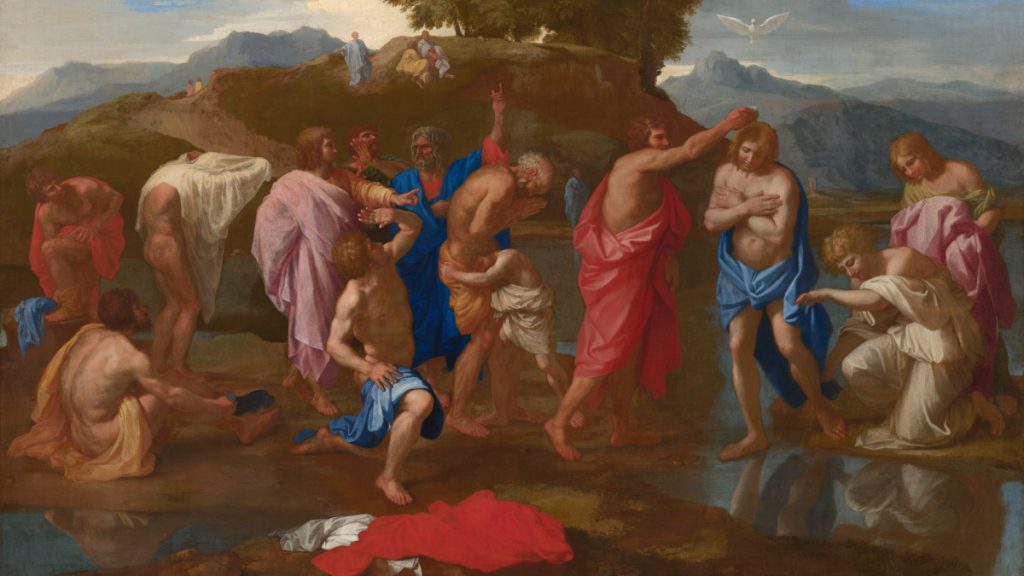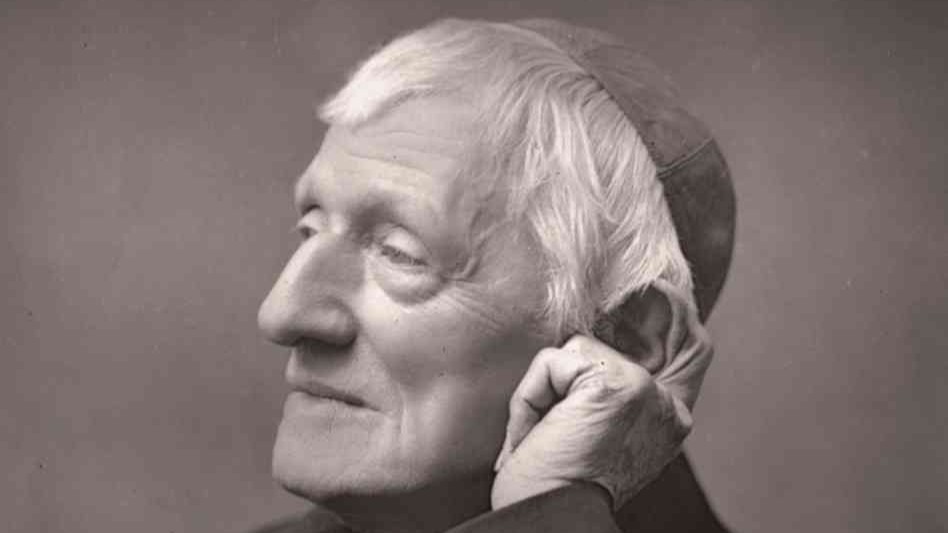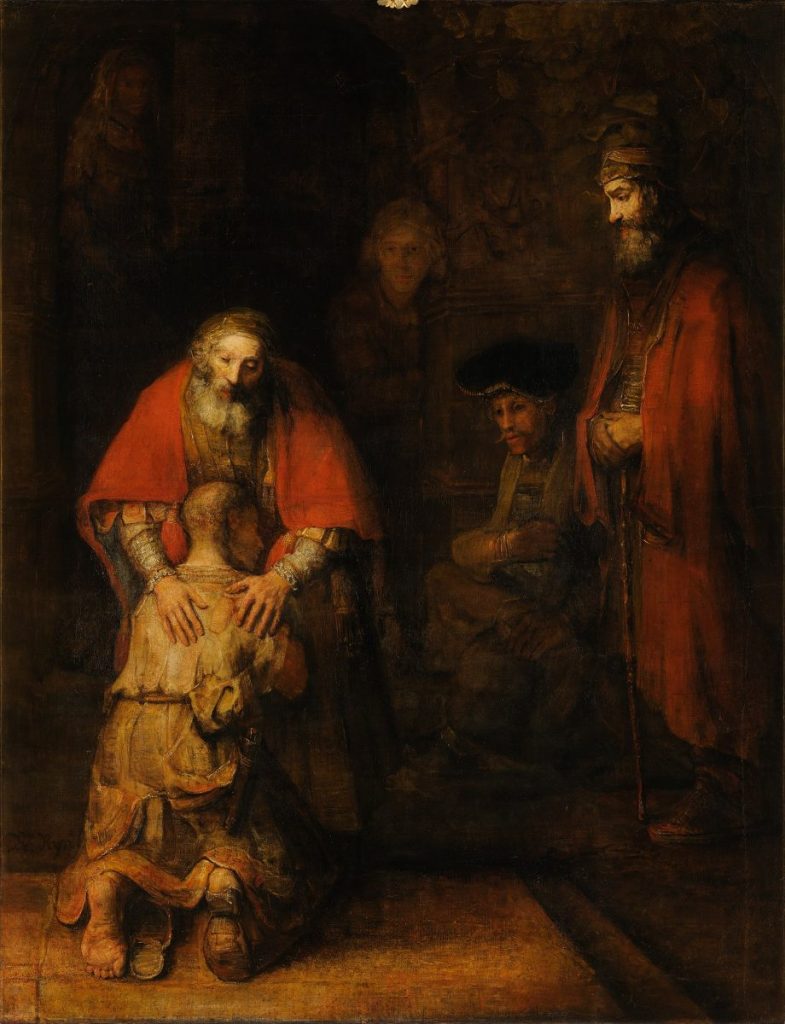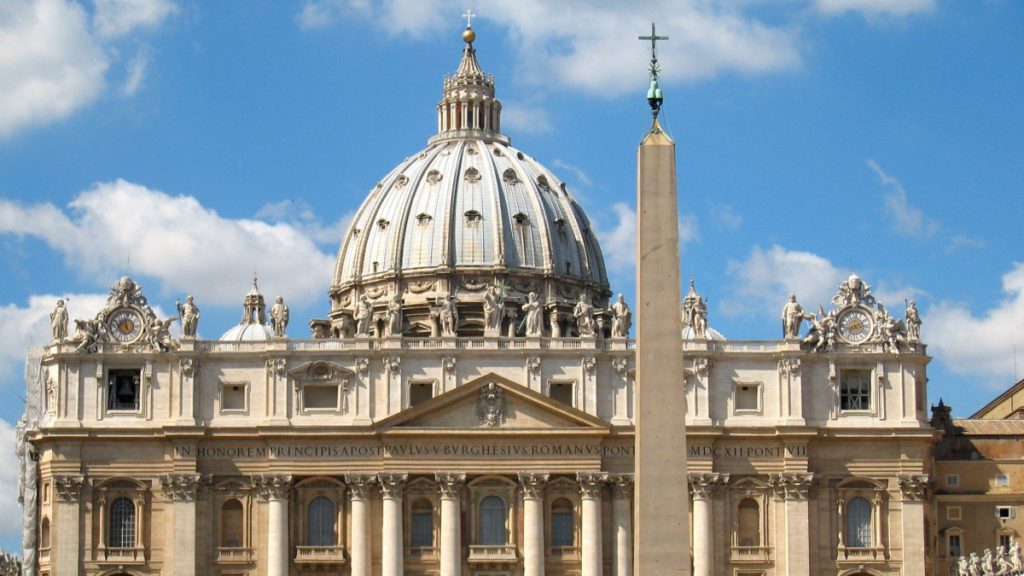(Updated March 24, 2025)
Editor’s Introduction
Great Tradition Treasury Summary
In an effort to make the writings of the Church Fathers more available and accessible, Eternal Christendom is in the process of creating a “Great Tradition Treasury,” which will modernize and make as many writings of the Great Tradition available in the public domain. A prominent part of this Treasury will be a new collection of the writings of the Fathers whose translations into English are in the public domain, most from the 19th century. While they have much to commend them, they stand in need of improvement in order to be more accessible to a 21st century audience.
With that in mind, the Great Tradition Treasury will edit and refine these translations in the following ways:
- Modernize Spelling | Update the spelling of certain archaic English words (i.e. “thee,” “thou,” “hath,” various plural words ending in “eth,” etc.).
- Standardize Scripture Citations | Standardize and correct the citations to Scripture, and placing them in the body of the text, so that alternating between text and footnotes is kept to a minimum. Every direct quote of Scripture will be followed by a parenthetical, and every allusion to it will be followed by a bracketed citation, each linked to the RSVCE.
- Optimize Headings | Improve the 19th century editor-provided headings, which are often too wordy or imprecise.
- Alternative Renderings | Place alternative renderings of phrases provided by the translators next to the translated text in [bolded, bracketed font], so that the alternative can be seen within the text (rather than a footnote), but also clearly distinguished from it. Literal renderings will be displayed [literal: “quote”]. Alternative renderings will be displayed [or, “quote”].
- Hyperlinked Cross-Referencing | Whenever possible, hyperlink to publicly available versions of the works cited, whether Scripture or otherwise.
- Correct Mistakes | Fix typos, misspellings, and incorrect citations to Scripture and other sources.
Document Information
- Author/Title/Source | St. Ignatius of Antioch, Letter to the Smyrnaeans
- Date | c. 107
Author’s Introduction
Ignatius, who is also called Theophorus, to the Church of God the Father, and of the beloved Jesus Christ, which has through mercy obtained every kind of gift, which is filled with faith and love, and is deficient in no gift, most worthy of God, and adorned with holiness [literally: “holy-bearing”]: the Church which is at Smyrna, in Asia, wishes abundance of happiness, through the immaculate Spirit and word of God.
§1 | Thanks to God for Your Faith
I glorify God, even Jesus Christ, who has given you such wisdom. For I have observed that you are perfected in an immoveable faith, as if you were nailed to the cross of our Lord Jesus Christ, both in the flesh and in the spirit, and are established in love through the blood of Christ, being fully persuaded with respect to our Lord, that He was truly of the seed of David according to the flesh [Rom. 1:3], and the Son of God according to the will and power1 of God; that He was truly born of a virgin, was baptized by John, in order that all righteousness might be fulfilled by Him [Matt. 3:15]; and was truly, under Pontius Pilate and Herod the tetrarch, nailed [to the cross] for us in His flesh. Of this fruit [i.e., the cross, “fruit” referring to Christ on the tree] we are by His divinely-blessed passion, that He might set up a standard for all ages [Isa. 5:26; 49:22], through His resurrection, to all His holy and faithful [followers], whether among Jews or Gentiles, in the one body of His Church.
§2 | Christ’s True Passion
Now, He suffered all these things for our sakes, that we might be saved. And He suffered truly, even as also He truly raised up Himself, not, as certain unbelievers maintain, that He only seemed to suffer, as they themselves only seem to be [Christians]. And as they believe, so shall it happen to them, when they shall be divested of their bodies, and be mere evil spirits [or, “seeing that they are phantasmal and diabolical”].
§3 | Christ’s Real Resurrection Body
For I know that after His resurrection also He was still possessed of flesh [literally: “in the flesh”], and I believe that He is so now. When, for instance, He came to those who were with Peter, He said to them, “Lay hold, handle Me, and see that I am not an incorporeal spirit [literally: “demon”].”2 And immediately they touched Him, and believed, being convinced both by His flesh and spirit. For this cause also they despised death, and were found its conquerors [literally: “above death”]. And after his resurrection He did eat and drink with them, as being possessed of flesh, although spiritually He was united to the Father.
§4 | Beware of Heretics
I give you these instructions, beloved, assured that you also hold the same opinions [as I do]. But I guard you beforehand from those beasts in the shape of men, whom you must not only not receive, but, if it be possible, not even meet with; only you must pray to God for them, if by any means they may be brought to repentance, which, however, will be very difficult. Yet Jesus Christ, who is our true life, has the power of [effecting] this. But if these things were done by our Lord only in appearance, then am I also only in appearance bound. And why have I also surrendered myself to death, to fire, to the sword, to the wild beasts? But [in fact] he who is near to the sword is near to God; he that is among the wild beasts is in company with God; provided only he be so in the name of Jesus Christ. I undergo all these things that I may suffer together with Him [Rom. 8:17], He who became a perfect man inwardly strengthening me [Phil. 4:13].
§5 | The Errors of Heretics
Some ignorantly [or, “foolishly”] deny Him, or rather have been denied by Him, being the advocates of death rather than of the truth. These persons neither have the prophets persuaded, nor the law of Moses, nor the Gospel even to this day, nor the sufferings we have individually endured. For they think also the same thing regarding us [i.e., as they imagine Christ to have suffered only in appearance, so they believe that we suffer in vain]. For what does anyone profit me, if he commends me, but blasphemes my Lord, not confessing that He was [truly] possessed of a body? [literally: “a flesh-bearer”]. But he who does not acknowledge this, has in fact altogether denied Him, being enveloped in death [literally: “a death-bearer”]. I have not, however, thought good to write the names of such persons, inasmuch as they are unbelievers. Yea, far be it from me to make any mention of them, until they repent and return to [a true belief in] Christ’s passion, which is our resurrection.
§6 | Heretics Shall be Condemned
Let no man deceive himself. Both the things which are in heaven, and the glorious angels [literally: “the glory of the angels”], and rulers, both visible and invisible, if they believe not in the blood of Christ, shall, in consequence, incur condemnation [literally: “judgment is to them”]. “He that is able to receive it, let him receive it” (Matt. 19:12). Let not [high] place puff anyone up: for that which is worth all is [literally: “the whole is”] faith and love, to which nothing is to be preferred. But consider those who are of a different opinion with respect to the grace of Christ which has come to us, how opposed they are to the will of God. They have no regard for love; no care for the widow, or the orphan, or the oppressed; of the bond, or of the free; of the hungry, or of the thirsty.
§7 | Heretics Abstain from the Eucharist; Separate From Them
They abstain from the Eucharist and from prayer,3 because they confess not the Eucharist to be the flesh of our Savior Jesus Christ, which suffered for our sins, and which the Father, of His goodness, raised up again. Those, therefore, who speak against this gift of God, incur death [literally: “die disputing”] in the midst of their disputes. But it were better for them to treat it with respect [literally: “to love”],4 that they also might rise again. It is fitting, therefore, that you should keep aloof from such persons, and not to speak of5 them either in private or in public, but to give heed to the prophets, and above all, to the Gospel, in which the passion [of Christ] has been revealed to us, and the resurrection has been fully proved [literally: “perfected”]. But avoid all divisions, as the beginning of evils.
§8 | Do Nothing Without the Bishop
See that you all follow the bishop, even as Jesus Christ does the Father, and the presbytery as you would the apostles; and reverence the deacons, as being the institution [or, “command”] of God. Let no man do anything connected with the Church without the bishop. Let that be deemed a proper [or, “firm”] Eucharist, which is [administered] either by the bishop, or by one to whom he has entrusted it. Wherever the bishop shall appear, there let the multitude [of the people] also be; even as, wherever Jesus Christ is, there is the Catholic Church. It is not lawful without the bishop either to baptize or to celebrate a love-feast; but whatsoever he shall approve of, that is also pleasing to God, so that everything that is done may be secure and valid [or, “firm”].
§9 | Honor the Bishop
Moreover [or, “finally”], it is in accordance with reason that we should return to soberness [of conduct], and, while yet we have opportunity, exercise repentance towards God. It is well to reverence [literally: “to know”] both God and the bishop. He who honors the bishop has been honored by God; he who does anything without the knowledge of the bishop, does [in reality] serve the devil. Let all things, then, abound to you through grace, for you are worthy. You have refreshed me in all things, and Jesus Christ [shall refresh] you. You have loved me when absent as well as when present. May God recompense you, for whose sake, while you endure all things, you shall attain unto Him.
§10 | Acknowledgment of Smyrnaeans’ Kindness
You have done well in receiving Philo and Rheus Agathopus as servants [or, “deacons”] of Christ our God, who have followed me for the sake of God, and who give thanks to the Lord in your behalf, because you have in every way refreshed them. None of these things shall be lost to you. May my spirit be for you,6 and my bonds, which you have not despised or been ashamed of; nor shall Jesus Christ, our perfect hope, be ashamed of you.
§11 | Request to Send a Messenger to Antioch
Your prayer has reached to the Church which is at Antioch in Syria. Coming from that place bound with chains, most acceptable to God [literally: “most becoming of God”], I salute all; I who am not worthy to be styled from thence, inasmuch as I am the least of them. Nevertheless, according to the will of God, I have been thought worthy [of this honor], not that I have any sense [or, “from any conscience”] [of having deserved it], but by the grace of God, which I wish may be perfectly given to me, that through your prayers I may attain to God. In order, therefore, that your work may be complete both on earth and in heaven, it is fitting that, for the honor of God, your Church should elect some worthy delegate [literally: “God-ambassador”]; so that he, journeying into Syria, may congratulate them that they are [now] at peace, and are restored to [or, “have received”] their proper greatness, and that their proper constitution [literally: “body”] has been re-established among them. It seems then to me a becoming thing, that you should send some one of your number with an epistle, so that, in company with them, he may rejoice [literally: “may glorify with him”] over the tranquility which, according to the will of God, they have obtained, and because that, through your prayers, they have now reached the harbor. As persons who are perfect, you should also aim at [or, “think of”] those things which are perfect. For when you are desirous to do well, God is also ready to assist you.
§12 | Salutations
The love of the brethren at Troas salutes you; from which also I write to you by Burrhus, whom you sent with me, together with the Ephesians, your brethren, and who has in all things refreshed me. And I would that all may imitate him, as being a pattern of a minister [or, “the ministry”] of God. Grace will reward him in all things. I salute your most worthy [literally: “worthy of God”] bishop, and your very venerable [literally: “most becoming of God”] presbytery, and your deacons, my fellow-servants, and all of you individually, as well as generally, in the name of Jesus Christ, and in His flesh and blood, in His passion and resurrection, both corporeal and spiritual, in union with God and you [literally: “in the union of God and of you”]. Grace, mercy, peace, and patience, be with you forevermore!
§13 | Conclusion
I salute the families of my brethren, with their wives and children, and the virgins who are called widows.7 Be you strong, I pray, in the power of the Holy Ghost. Philo, who is with me, greets you. I salute the house of Tavias, and pray that it may be confirmed in faith and love, both corporeal and spiritual. I salute Alce, my well-beloved [literally: “the name desired of me”], and the incomparable Daphnus, and Eutecnus, and all by name. Fare you well in the grace of God.
Footnotes
- Theodoret, in quoting this passage, reads “the Godhead and power.” ↩︎
- According to St. Jerome, this quotation is from the Gospel of the Nazarenes; cf. Luke 24:39. ↩︎
- Theodoret, in quoting this passage, reads προσφοράς as “offering.” ↩︎
- Some think there is a reference to the agapae, or love feasts. ↩︎
- The reading is περί in the one case, and μετά in the other, though the latter meaning seems preferable. Most of the manuscripts of the longer version read περί, as in the shorter. ↩︎
- Cf. St. Ignatius of Antioch, Letter to the Ephesians (§21); Letter to St. Polycarp (§2). ↩︎
- The deaconesses seem to have been called widows. ↩︎

